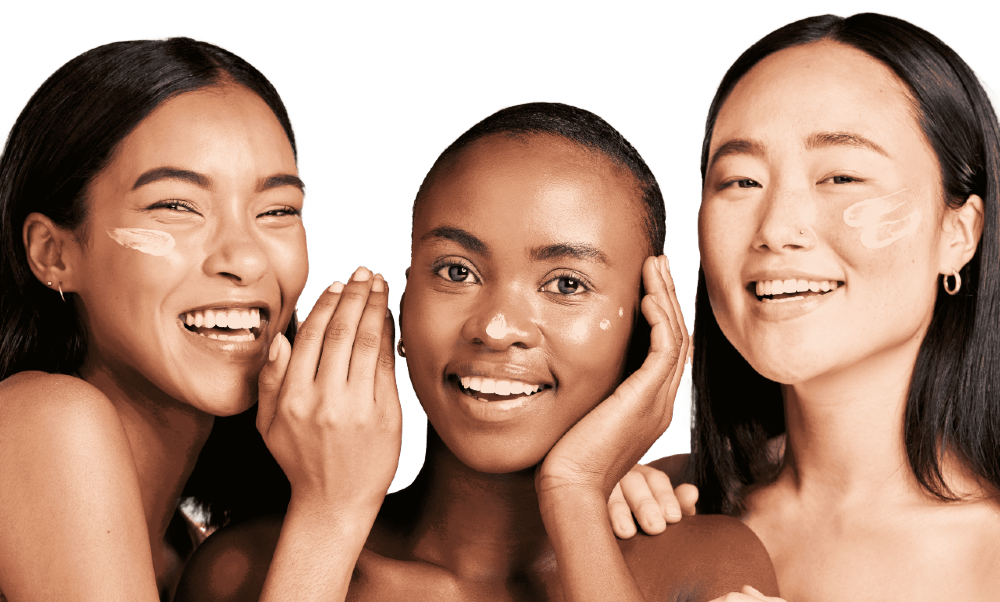The Rise of Personalized Skincare in 2025: What It Means for Consumers
The beauty industry is evolving faster than ever. In 2025, one of the biggest trends is the rise of personalized skincare — also called adaptive skincare — where routines and products are tailored to your unique skin type, genetics, and lifestyle. Unlike the one-size-fits-all approach, personalized skincare relies on data, advanced formulations, and smart routines that adapt as your skin changes.
At Dosepop (https://www.dosepop.com/skin-care/), our lineup of dermatologist-grade products like Anti-Aging Ultra Cream, Acne Xtreme Gel, Tretinoin creams, and NAD+ Cream are designed to fit seamlessly into this new world of adaptive skincare. In this blog, we’ll explore what personalized skincare means, why it matters, and how you can benefit from this cutting-edge trend in 2025.
What Is Personalized Skincare?
Personalized skincare refers to routines and products that are selected or formulated based on your individual skin concerns. Rather than buying generic moisturizers or cleansers, consumers now look for targeted solutions backed by science.
For example:
- If you struggle with acne, treatments like Acne Xtreme Gel or Acne DNS Gel may be integrated.
- If you’re dealing with rosacea or dermatitis, soothing options like Rosacea ABIMN Gel, Dermatitis TN Cream, or Dermatitis Atopic Cream become essential.
- For aging skin, actives like GHK Cu Facial Serum, Tretinoin TAAN Mild Cream, and Anti-Aging Siro Gel are matched to your routine.
Adaptive skincare also recognizes that your skin’s needs change depending on the season, diet, stress levels, or hormonal cycles — meaning your regimen should shift too.
Why Is Personalized Skincare Rising in 2025?
Several factors are driving this trend:
- Consumer Demand for Results
Shoppers want visible improvements, not generic promises. Products like Melasma HQ 4.1 Cream and Melasma TA Gel cater to specific pigmentation problems, making results easier to track.
- Advances in Ingredient Science
Ingredients like NAD+ (for cellular repair), GHK Cu peptides (for collagen support), and retinoids (like Tretinoin) are clinically backed. Personalization helps consumers know exactly where these fit in their routine.
- Technology Integration
From AI-powered skin analysis apps to DNA tests, consumers now have access to tools that recommend products tailored to their biology.
- Preventive Skincare
People aren’t just treating problems; they’re preventing them. Anti-aging products like Anti-Aging Ultra Cream are used earlier as part of adaptive regimens to slow down visible aging.
How Personalized Skincare Works
Adaptive skincare can be built in different ways:
- Skin Type Targeting: Oily, dry, sensitive, or combination routines.
- Condition-Specific Treatments: Acne, rosacea, melasma, dermatitis.
- Lifestyle Adaptations: Pollution-heavy cities may require more antioxidants, while colder climates demand richer creams.
- Age-Specific Protocols: Younger consumers may focus on acne prevention, while mature consumers lean toward anti-aging with tretinoin and peptide serums.
Dosepop’s skincare line is structured so you can easily adapt. For instance, using Acne Xtreme Gel in breakout phases, switching to Rosacea ABIMN Gel when redness flares, or rotating Tretinoin creams with NAD+ Cream for balanced anti-aging.
Key Products in Adaptive Skincare
Here’s how some of Dosepop’s hero products fit into the personalized skincare movement:
- Anti-Aging Ultra Cream / Anti-Aging Siro Gel: Hydrate, reduce fine lines, and restore elasticity.
- Acne Xtreme Gel / Acne DNS Gel: Clear breakouts and control oil production.
- Dermatitis TN Cream / Dermatitis Atopic Cream: Calm irritation and repair the barrier.
- Bimatoprost Eyelash Solutions (Latisse® and Generic): Enhance lash growth for a tailored beauty boost.
- GHK Cu Facial Serum: Stimulates collagen for firmer, younger-looking skin.
- Melasma HQ 4.1 Cream / Melasma TA Gel: Fade stubborn pigmentation and dark patches.
- NAD+ Cream: Support cellular energy and resilience for long-term skin health.
- Rosacea ABIMN Gel: Reduce redness and inflammation in sensitive skin.
- Tretinoin TAAN Mild Cream / Tretinoin TAAN Sensitive: The gold standard for anti-aging and acne care.
Personalized skincare means these products are not used all at once, but introduced strategically based on your evolving needs.
Benefits of Personalized Skincare
- Faster Results: Targeted actives deliver visible changes in less time.
- Fewer Irritations: Choosing the right strength (like Tretinoin Mild vs Sensitive) prevents overuse and side effects.
- Cost-Effective: Instead of buying dozens of products, consumers invest in the few that truly work for them.
- Sustainable Routines: Adaptive skincare encourages consistency, which is the foundation of lasting results.
What Consumers Should Expect in 2025
- AI-driven product recommendations will become mainstream.
- Ingredient transparency will matter more, with brands like Dosepop highlighting proven actives such as tretinoin, peptides, and NAD+.
- Preventive skincare at younger ages: Gen Z is already adopting anti-aging serums early.
- Greater demand for condition-specific formulas, like melasma gels, rosacea creams, and dermatitis treatments.
Staying ahead of these trends ensures you’ll be using products that evolve with your skin.
FAQs: Personalized Skincare
What is personalized skincare and why is it important?
Personalized skincare means tailoring your routine to your unique needs. It helps maximize results while minimizing irritation by choosing targeted solutions like Acne DNS Gel for breakouts or GHK Cu Facial Serum for collagen support.
How do I know which skincare products to use?
Identify your top concerns (aging, acne, pigmentation, irritation). For aging, consider Anti-Aging Ultra Cream or Tretinoin TAAN Creams. For pigmentation, Melasma HQ 4.1 Cream works well. For sensitivity, Dermatitis TN Cream helps repair the barrier.
Why is adaptive skincare better than a standard routine?
Adaptive skincare evolves as your skin does. For example, in winter you may need NAD+ Cream for hydration, while in summer, lightweight Anti-Aging Siro Gel may be enough.
How long does it take to see results from a personalized routine?
Hydration benefits show in a few days, acne clears in 4–6 weeks, and anti-aging results with tretinoin or GHK Cu peptides appear within 8–12 weeks.
Can I combine multiple personalized skincare products?
Yes, but it depends on tolerance. For instance, you can layer GHK Cu Serum under Anti-Aging Ultra Cream, but you may alternate Tretinoin and Melasma Creams to avoid irritation.
Trends and the Future of Personalized Skincare
- AI + skincare: Expect apps that scan your skin and update your routine instantly.
- Ingredient-led shopping: More consumers are searching for terms like “tretinoin cream,” “peptide serum,” and “NAD+ cream” rather than just brand names.
- Holistic wellness: Skincare will be integrated with nutrition and sleep optimization.
- Sustainability: Consumers prefer multi-tasking products like Anti-Aging Ultra Cream that reduce routine clutter.
Updating your skincare blog with these trends will keep content fresh, relevant, and SEO-friendly for search engines in 2025.
Final Thoughts
The rise of personalized skincare in 2025 is about empowerment. Consumers want routines that adapt to their lifestyle, genetics, and changing skin conditions. From acne and melasma to rosacea and anti-aging, the future is about tailored solutions that evolve with you.
At Dosepop (https://www.dosepop.com/skin-care/), our science-backed line — including Anti-Aging Ultra Cream, GHK Cu Serum, Acne gels, Melasma treatments, NAD+ Cream, Rosacea gel, and Tretinoin creams — makes it easy to create your own adaptive regimen.




